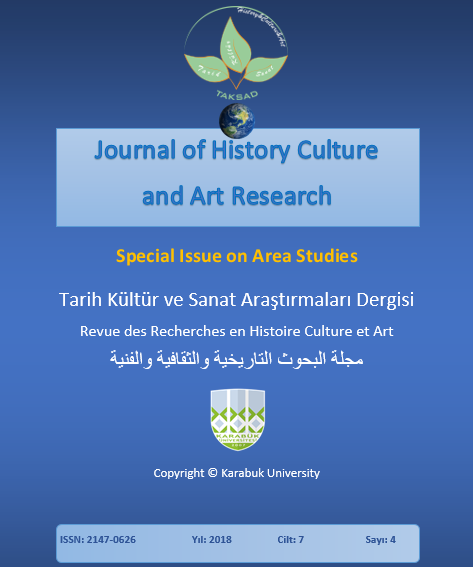Legal Entities Entitled to Invoke International Responsibility
DOI:
https://doi.org/10.7596/taksad.v7i4.1825Keywords:
International responsibility, Internationally wrongful act, Invocation of responsibility, Claim, International community, Third state.Abstract
The paper is devoted to the consideration of one of the most pressing problems of invocation to international legal responsibility: the definition of the circle of subjects entitled to make claims against a violator of the norms of international law. Taking into account the existing mandatory and recommendatory norms of international law, as well as the existing practice of international judicial bodies, the paper emphasizes the need for a clear definition of the legal category "victim", since it is that which has the right to call an offender to justice. When determining a victim, three situations may exist: when the obligation is violated in relation to one state, when the obligation is violated with respect to a group of states and when the interests of the international community as a whole are violated. At the same time, in classical bilateral relations, only the directly injured state has the right to call to account, regardless of the seriousness of such relations, which does not prevent the third states from expressing their concern about the situation. However, in the event of a breach of obligations towards the international community as a whole, even if there is a directly affected subject of international law, the entire international community, on which behalf the United Nations has the right to claim, has the right to appeal.
References
Bird, A. (2010). Third State Responsibility for Human Rights Violations. EJIL, 21, 883–900.
Crawford, J. (2013). State Responsibility: The General Part. Cambridge: Cambridge University Press.
Gusseinov, L. G. (2000). International responsibility of states for violation of human rights. Kiev: State and Law Institute of the National Academy of Sciences of Ukraine.
International Court of Justice (2001). La Grand case (Germany v. United States of America). URL: https://www.icj-cij.org/files/case-related/104/7738.pdf
International Court of Justice (2004). Case concerning Avena and Other Mexican Nationals (Mexico v. United States of America). URL: https://www.icj-cij.org/en/case/128.
Lanovoy, V. (2016). Complicity and its Limits in the Law of International Responsibility. Oxford: Hart Publishing.
Scobbie, I. (2002). The Invocation of Responsibility for the Breach of ‘Obligations under Peremptory Norms of General International Law’. EJIL, 13, 1201-1220.
United Nations (2000). United Nations International Law Commission and the ILA Director of Studies. First Report of the International Law Association (ILA) Study Group on the Law of State Responsibility. URL: http//www.ila-hq.orgencommitteesstudy_groups.cfmcid1014
United Nations (2001). Comments and Observations Received from Governments. Doc. A/CN.4/515/Add.1. URL: http://legal.un.org/ilc/publications/yearbooks/english/ilc_2001_v2_p1.pdf
United Nations (2001). Responsibility of States for International Wrongful Acts. Doc. A/Res/56/83. URL: http://legal.un.org/ilc/texts/instruments/english/draft_articles/9_6_2001.pdf
United Nations (2001). State Responsibility. Doc. A/CN. 4/517. P.17. URL: http://legal.un.org/ilc/publications/yearbooks/english/ilc_2001_v2_p1.pdf
Downloads
Published
How to Cite
Issue
Section
License
All papers licensed under Creative Commons 4.0 CC-BY.- Share — copy and redistribute the material in any medium or format
- Adapt — remix, transform, and build upon the material for any purpose, even commercially.
Under the following terms:
Attribution — You must give appropriate credit, provide a link to the license, and indicate if changes were made. You may do so in any reasonable manner, but not in any way that suggests the licensor endorses you or your use.
- No additional restrictions — You may not apply legal terms or technological measures that legally restrict others from doing anything the license permits.







